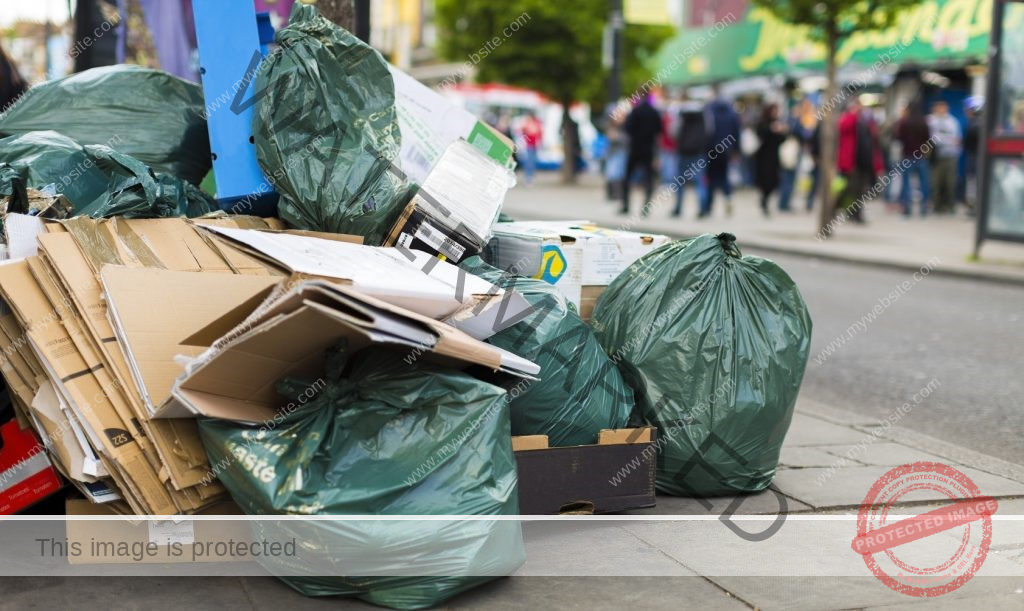Introduction
Also known as business or industrial waste, commercial waste is all waste produced from business activities including retail, manufacturing, construction, and office operations. Although the environmental and financial consequences of improper waste disposal are well known, what usually goes unnoticed is the significant legal consequences connected to how companies handle their waste.
Failing to control commercial waste properly could result in legal non-compliance, financial penalties, business disruptions, and even criminal prosecution in a time of ever more rigorous environmental rules. This article investigates in depth how commercial waste affects your legal compliance, the consequences of infractions, and the actions companies can take to stay within the limits of the law.
Duty of Care and Waste Responsibility
Among the most crucial legal concepts relating to commercial waste is the “duty of care.” This concept requires all companies to be in charge of the safe handling and disposal of their generated waste. From the moment waste is produced until its last disposal, this responsibility runs on. Companies have to make sure waste is correctly classified—such as hazardous, recyclable, or general waste—and handled appropriately. Neglecting to do so could violate legal obligation, which has notable consequences.
The duty of care also covers keeping records like waste transfer notes for a certain time and checking the qualifications of waste disposal companies. Companies cannot pass legal responsibility to others; should waste be mishandled downstream, the first producer could still be responsible. Seeking help from skip hire, such as midi skip hire, can greatly help in effective waste management.
Licensing and Permits
Commercial waste management’s legal compliance sometimes calls for getting and following particular licenses or permits. Depending on the kind and amount of waste, companies could require an environmental permit or waste management licence. A manufacturing unit generating chemical by-products, for instance, could need a permit to store hazardous waste on-site prior to transfer. Likewise, companies handling waste treatment or transportation have to be registered with relevant environmental authority.
Running without the appropriate licenses is obviously illegal and could result in major regulatory action including fines, operational suspensions, or even jail in exceptional circumstances.
Hazardous Waste and Special Requirements
Because of its capacity to seriously harm human health and the environment, hazardous waste creates particular legal issues. Waste is deemed hazardous if it has corrosive, toxic, flammable, or reactive chemicals. Among the examples are some kinds of electronic waste, medical waste, asbestos, batteries, and solvents. The law sets tighter standards for the storage, labelling, transportation, and disposal of hazardous waste.
Usually, companies have to use specially licensed carriers and treatment facilities and must categorise and record hazardous waste under particular rules. Misclassification or mishandling of hazardous waste not only breaches environmental laws but can also cause health and safety infractions under workplace rules, therefore aggravating legal concerns.
Penalties and Legal Consequences
Not following commercial waste laws has legal ramifications that are considerable and may change depending on the degree and frequency of infractions. From modest financial penalties for minor infractions to large sums for repeated or intentional violations, fines can vary. Businesses might be sued, lose licenses, and face criminal charges against company directors or staff members in situations where illegal waste disposal harms the environment or threatens public safety.
Legal disputes not only generate legal expenses but also have the potential to harm a company’s image, influence shareholder value, and cause client or contract loss. Regulatory agencies have gotten more forceful in their enforcement of compliance; ignorance of the law is not a valid defence.
Corporate Social Responsibility and Reputational Impact
Beyond legal requirements, business waste management is more and more connected with corporate social responsibility (CSR). Environmental practices are getting more attention from consumers, investors, and stakeholders; companies that ignore waste rules run more than legal consequences; they suffer reputation loss. Bad waste management can lead to negative media coverage, public outcry, and loss of consumer confidence.
Conversely, businesses that show environmental responsibility by going above legal waste management standards usually have improved brand loyalty, stronger relationships with stakeholders, and market competitiveness. Legal compliance should therefore be seen as both a duty and a chance to create a sustainable and reputable company.
Waste Management Contracts and Legal Safeguards
Many companies delegate third-party service providers to handle waste collection and disposal. Although this can be quick, it also adds legal complexity. Contracts with waste management firms have to explicitly state the duties of each side and make sure the contractors are licensed, insured, and follow all applicable rules. Companies should do due diligence to confirm a contractor’s qualifications and track their performance often.
Relying on poor service providers could put companies at legal risk, especially if waste is mishandled or disposed of illegally. Including indemnity clauses and demanding evidence of contract compliance can help to reduce these risks and guarantee mutual responsibility.
Digital Compliance and Waste Tracking
Digitalisation of compliance and waste tracking has increased legal obligation. Many governments now mandate companies to report waste data via online channels and keep digital records of waste transfers and permits. By enabling regulatory authorities to monitor waste from its source to final disposal, these systems promote openness and enforcement capabilities.
Failure to follow digital reporting rules could lead to fines or denial of waste licenses. Companies have to be aware of evolving digital compliance criteria, educate employees on system usage, and guarantee precise and prompt data submissions. Neglecting to include digital compliance procedures into waste management could result in unintentional legal violations.
Strategies for Ensuring Legal Compliance
Businesses have to take a proactive and integrated approach to waste management if they are to reduce legal concerns. Regular waste audits, accurate waste categorisation, safe storage, and use of licensed, trustworthy contractors for collection and disposal all fall under this category. Ensuring day-to-day compliance and building an environmental responsibility culture depend much on staff training.
Hiring environmental or legal experts can also enable companies to understand complicated rules and remain ahead of changes in legislation. Long-term adherence to waste laws and appropriate response in the event of inspections or legal enquiries depend on the development of a formal compliance system including recorded policies, procedures, and monitoring tools.
The Evolving Legal Landscape
Not static, the legal terrain around commercial waste changes constantly in reaction to environmental issues, technological developments, and policy changes. Governments all over the world are tightening rules to encourage carbon reduction, circular economy practices, and sustainability. This implies that companies have to not only follow present laws but also get ready for future rules.
Maintaining compliance in a dynamic regulatory environment calls for three key strategies: expecting legislative changes, following best practices, and supporting sustainable waste solutions. Not changing with the legal scene could lead to obsolete practices, more legal exposure, and loss of competitive edge.
Conclusion
Commercial waste is a legal issue with major consequences for companies. The intricate network of laws controlling waste management calls for vigilance, diligence, and a proactive approach. Every stage of the waste management process has legal relevance, from guaranteeing appropriate classification and disposal to keeping records and fulfilling digital reporting obligations. Ignoring these responsibilities puts companies at risk of fines, prosecution, and damage to their reputation.
Companies that include legal compliance into their operational and environmental plans not only escape legal issues but also set themselves as responsible and forward-looking companies in a fast changing society. Following commercial waste rules is not only a legal requirement—it’s a business imperative.

